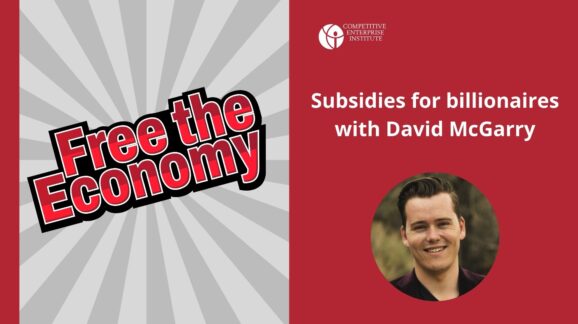There are two main areas in which Congress can enact meaningful reform. The first is to rein in regulatory guidance documents, which we refer to as “regulatory dark matter,” whereby agencies regulate through Federal Register notices, guidance documents, and other means outside standard rulemaking procedure. The second is to enact a series of reforms to increase agency transparency and accountability of all regulation and guidance. These include annual regulatory report cards for rulemaking agencies and regulatory cost estimates from the Office of Management and Budget for more than just a small subset of rules.
In 2019, President Trump signed two executive orders aimed at stopping the practice of agencies using guidance documents to effectively implement policy without going through the legally required notice and comment process.
Featured Posts

Blog
The week in regulations: Bird hunting and food coloring
The Federal Register’s website became less transparent about rule counts and other data. President Trump threatened to send the military into a third city. The…

Blog
Free the Economy podcast: Subsidies for billionaires with David McGarry
In this week’s episode we cover White House intervention in corporate ownership, the nation’s falling economic freedom ranking, and welcome new…

News Release
Federal appeals court rules on NLRB unconstitutionality
The 5th Circuit Court of Appeals today issued a ruling suggesting the structure of the federal government’s top labor dispute regulator, the National Labor Relations…
Search Posts
Blog
Germanic Hoards
The old central powers (Germany, Austria, Hungary) seem to have come together again in opposition to plans to phase out incandescent light bulbs in…
Blog
CEI’s RRM Suggests Additional Questions for Florida Insurance Commissioner
Yesterday in a press release from CEI's Center for Risk, Regulation, and Markets, the Center raised many questions that should be brought to Florida Insurance…
Newsletter
Healthcare Complexity, Union Politics and Insurance Markets
Critics question the unwieldy complexity of current healthcare legislation. A compromise version of the so-called “Employee Free Choice Act” gains momentum in Congress. Florida Rep.
Blog
Regulation of the Day 39: Postmodern Microwave Ovens
Appliances have to have little badges on them that say they comply with rule that requires the little badges. Perhaps the rule came from the…
Blog
Elaine Chao: Union transparency “more important than Beck;” EFCA “terrible”
Today, at the Heritage Foundation blogger briefing, former Labor Secretary Elaine Chao described the union transparency requirements introduced during the Bush administration as “more important…
Blog
Regulation of the Day 38: Carrying Letters
If anything qualifies as an anti-competitive practice, fining and jailing people for competing with you would certainly top the list. Which brings us to a…
Staff & Scholars

Clyde Wayne Crews
Fred L. Smith Fellow in Regulatory Studies
- Business and Government
- Consumer Freedom
- Deregulation

Ryan Young
Senior Economist
- Antitrust
- Business and Government
- Regulatory Reform

Fred L. Smith, Jr.
Founder; Chairman Emeritus
- Automobiles and Roads
- Aviation
- Business and Government

Sam Kazman
Counsel Emeritus
- Antitrust
- Automobiles and Roads
- Banking and Finance

Marlo Lewis, Jr.
Senior Fellow
- Climate
- Energy
- Energy and Environment